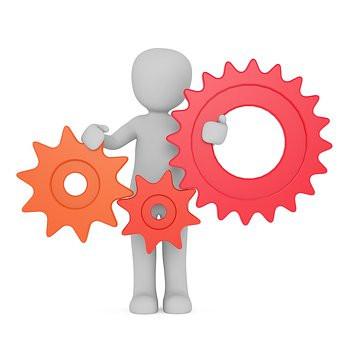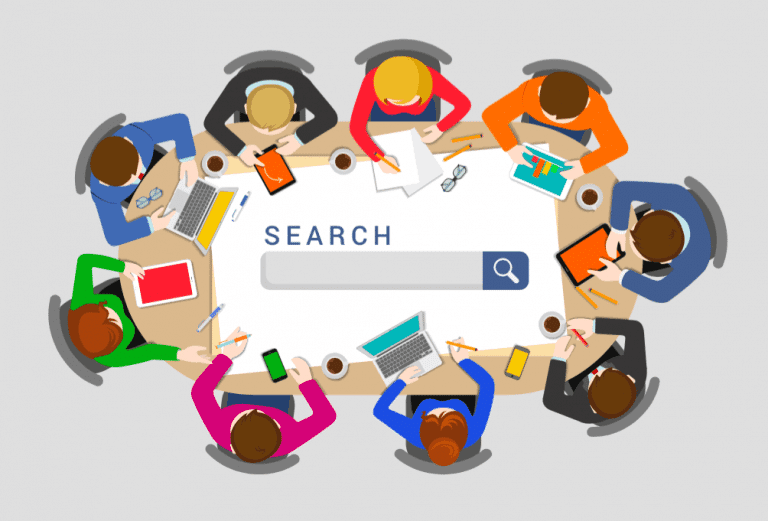Explore the World's Best Ideas
Join today and uncover 100+ curated journeys from 50+ topics. Unlock access to our mobile app with extensive features.
The exessive need to collaborate with others
Our beliefs about how we feel we need to "show up" for others can cause extreme collaborative demands and burnout.
For example, a desire to help others can lead us to jump into a project. Fear can prevent us from saying no to a collaborative request we are unable to do.
Guarding against common beliefs will help you reclaim your time and refocus your contributions where they can add the most value.
17
174 reads
Reducing collaborative overload
Research found that collaborating more purposefully can increase efficiency by 18 - 24%.
Three categories of behaviours can increase purposeful collaboration:
- Identifying and challenging beliefs that drive us to collaborate too soon. The need or fear to "show up" for others account for 50% or more of the overall problem.
- Adding structure to our work can prevent unproductive collaboration.
- Changing our behaviours can create more efficient collaboration.
17
104 reads
"My desire to help others"
Helping gives us a sense of purpose and fulfils a deep need to be useful. But if we jump in too quickly or too often or solve others' problems without building their capability, we become the regular go-to for requests.
- Be clear on your priorities and get comfortable saying "no".
- When you do jump in, don't solve people's problems directly. Instead, connect them to the right people, point them to the resources they need, or coach them to solve the problem.
18
73 reads
“My sense of fulfillment from accomplishment"
The satisfaction you get from doing something can be addictive and detract from focusing your energy on where you add the most value.
Avoid routine and often mindless activities that give you a sugar rush for accomplishment's sake. For example, going through all your email rather than using that time for more taxing work.
17
81 reads
"My desire to be influential or recognized for my expertise"
The desire to influence others and be recognized can drive excessive collaborative demands back to you. Expertise can become a trap of its own: Focusing on your own can prevent you from developing it in other people.
Don't look for status in your expertise. Be mindful of the ways you comment in meetings or email threads that make people believe they need to defer to you or get your input.
18
70 reads
“My concern with being labeled a poor performer"
Worrying about being labelled a poor performer makes it impossible to say "no" to a request.
Don't think saying "no" is your only option. Offer choices, such as "What order would you like me to do these?" Create transparency in the volume of demands you are already facing, then discuss the real needs. See if you can accomplish the request in a different way.
20
71 reads
“My need to be right"
The need to be correct creates unproductive activities, pushing people to spend hours preparing for meetings, writing perfect emails, and creating excess work for others.
Instead, admit that you don't know the exact answer but are willing to quickly find out. Being open about your limits and having the courage to ask questions reduces unproductive activities.
18
50 reads
“Fear of losing control of a project/a belief that I am the most capable person"
Your need for control keeps you from delegating tasks or connecting people. In turn, team members feel that their autonomy has been diminished.
Draw a line between high-risk tasks that really require your expertise and lower-risk work you can delegate. Build capability in others to free up time to engage in greater value. Don't point out how you would have done it differently. Instead, celebrate others' solutions.
20
56 reads
“My need for closure results in communications that create unnecessary work "
Overemphasising completeness for completeness's sake creates unnecessary stress for your team members and drives them to chase the wrong objectives.
Remind yourself that an empty email inbox or closure should not be a high priority. Put off non-priority work or requests or leave it all together.
17
59 reads
“My discomfort with ambiguity and managing adaptation as a project unfolds"
Feeling discomfort with ambiguity makes you feel that you don't have enough information, a clear-enough process, or a clear plan. Consequently, you always search for more data, processes and strategy that consumes hours of your time.
Instead, be open to adapting ideas and plans as new information comes in. Then, instead of spending hours on getting the most accurate solution, look for a productive solution in 20 minutes to help you move ahead.
19
61 reads
“FOMO drives me to engage in collaborative work"
FOMO can drive unproductive choices, like jumping into new collaborative projects. You may end up in projects where you feel overburdened and that are not well aligned with what you want from your career.
Ensure your emotions don't drive your plans. Cultivate relationships with people who know you well and ask them to help you avoid making a decision based on FOMO.
17
56 reads
IDEAS CURATED BY
Amanda Brady's ideas are part of this journey:
Learn more about career with this collection
Cultivating a growth mindset and embracing challenges
Developing adaptive thinking and problem-solving skills
Effective learning frameworks and approaches
Related collections
Similar ideas
Read & Learn
20x Faster
without
deepstash
with
deepstash
with
deepstash
Personalized microlearning
—
100+ Learning Journeys
—
Access to 200,000+ ideas
—
Access to the mobile app
—
Unlimited idea saving
—
—
Unlimited history
—
—
Unlimited listening to ideas
—
—
Downloading & offline access
—
—
Supercharge your mind with one idea per day
Enter your email and spend 1 minute every day to learn something new.
I agree to receive email updates





